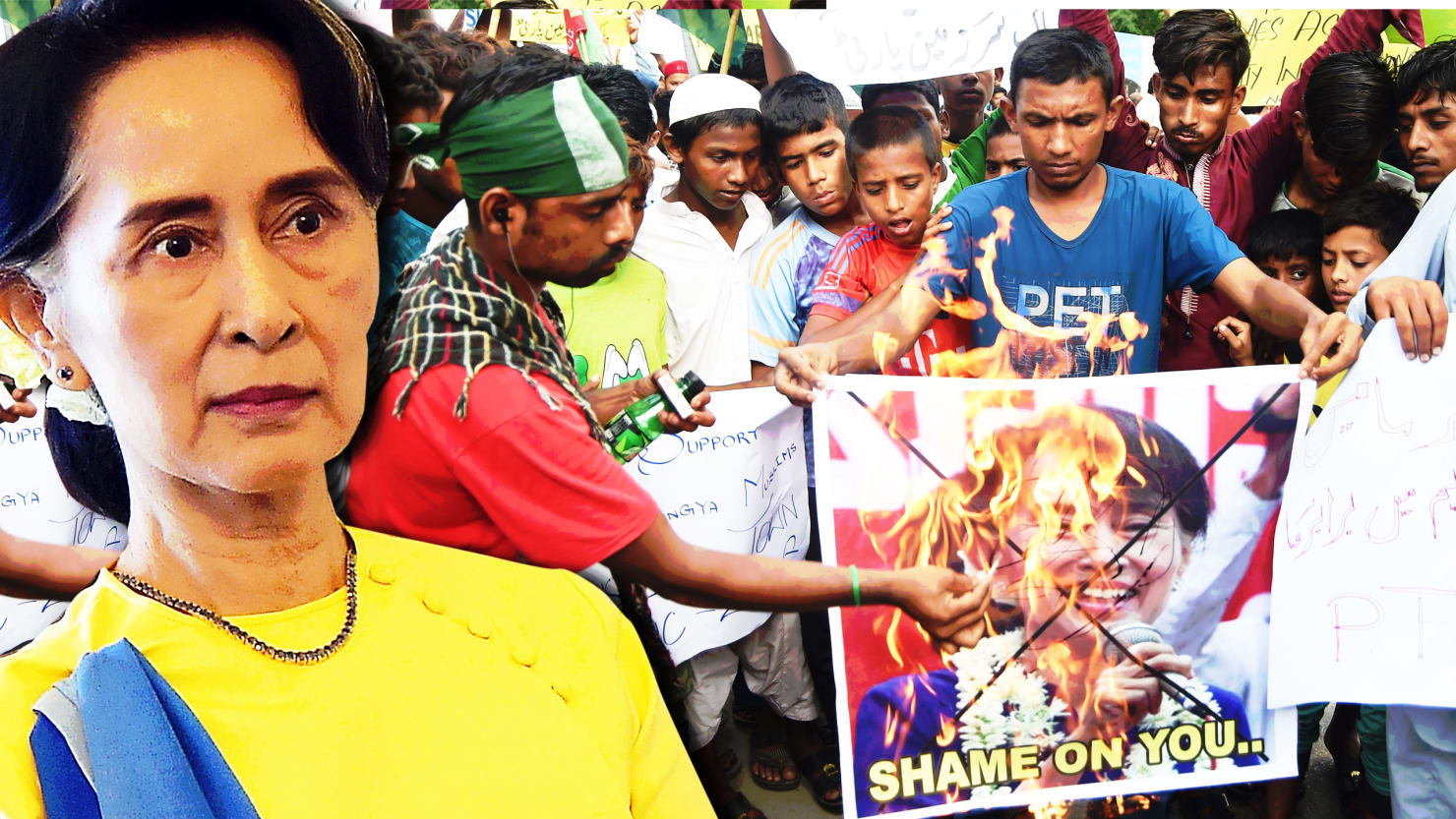 Nick G.
Nick G.VANGUARD - Expressing the viewpoint of the Communist Party of Australia (Marxist-Leninist)
For National Independence and Socialism • www.cpaml.org
The Rohingya refugee crisis requires the strongest condemnation of Myanmar and its leader Aung San Suu Kyi.
The Rohingya, originally from what is now Bangladesh, have lived for centuries in Myanmar, a Muslim minority in an overwhelmingly Buddhist country.
Always a persecuted minority, the Rohingya have suffered attempts over several years to drive them from their homes. In this respect, the Buddhists are driven by a reactionary religious intolerance of other peoples that is no different to reactionary currents among Christians, Muslims, Zionist Jews and other religious belief systems.
The anti-Rohingya sentiment in Myanmar is also a legacy of British imperialism’s well-known policy of “divide and rule”. Pushing the line of Buddhist purity and Buddhist exceptionalism, the reactionary Buddhist leaders are serving the interests of the imperialists and local Myanmar bourgeoisie by denying class contradictions within the Myanmar social structure.
Aung San Suu Kyi was embraced by global imperialism for demanding “democracy” and “independence” for Myanmar. She was awarded a Nobel Peace Prize and kept under house arrest by the military rulers. Imperialism wanted to remove the military dictatorship’s obstacles to the free flow of trade and finance capital, and promoted Aung San Suu Kyi for their own ends, at the same time as her championing of an end to military dictatorship won her the support of wide sections of the Myanmar people.
Whatever she may have done for Myanmar Buddhists since her election as de facto head of state in 2015, she has not extended to Rohingya, referring to them as “Bengalis” and “terrorists”. The reactionary Buddhists of Myanmar refuse to use the term “Rohingya” because it defines the Muslim minority as people of Rakhine state, a poverty-stricken part of Myanmar. For the purposes of ethnic cleansing, it does not suit to imply any rights of residence in Rakhine for the Muslims.
Pathetic Australian government response
Australia has been well aware of the ethnic cleansing and persecution of Rohingya for several years. It has provided authorities in Rakhine with small amounts of aid to “assist” the Rohingya. However, it has prioritised Aung San Suu Kyi’s efforts to stabilise the murderous regime and “open” Myanmar ahead of the rights of the Rohingya. This was quite clearly the case in March 2017 when the Turnbull Government rejected a Senate vote calling for a United Nations commission of enquiry into the persecution of the Rohingya. The Government said Myanmar should conduct its own investigation and referred to the “scale and complexity of the transition” that Myanmar is undergoing, and acknowledged “positive steps” taken by its government.
Several weeks later, it reversed its position and co-sponsored a resolution at the UN human rights forum for the UN to send a fact-finding mission to Myanmar. The change was partly fuelled by an upsurge of reported atrocities against the Rohingya on one hand, and Australia’s hypocritical push for membership of the UN Human Rights Council from 2018.
China incites bourgeois nationalism at home to justify support for Myanmar
China is also well aware of the persecution of the Rohingya, but also prioritises its relations with Myanmar’s ruling circles above those of the Muslim minority. It has provided little coverage of the refugee crisis to its own people and the government online newspaper Global Times admits that Aung San Suu Kyi’s name could not be searched on Sina Weibo, the country’s main internet search engine.
Nevertheless, the paper yesterday (September 17) reported that the Myanmar leader had gained popularity with Chinese netizens, who praised her defiance against “outside pressure while safeguarding her people’s interest”.
Indeed, China should support any state that is standing up to “outside pressure”, but it should not support a state that is oppressing its own people. Big power expedience and expansionist aims are driving Beijing’s response to the Rohingya crisis, not socialist ideals of proletarian internationalism.
This is clearly evident from the way Global Times has framed the debate: “Another reason for Suu Kyi’s rising popularity is her friendly policy on China which many did not expect. And since she has visited China twice, Chinese leaders might visit Myanmar in the near future, so the Chinese people and government don’t want to damage bilateral ties.”
Myanmar is a pivotal part of Beijing’s One Belt One Road initiative. Chinese investments in the country include a cross-border oil and gas pipeline that is expected to become an alternative route for energy imports from the Middle East as it avoids the Malacca Strait, a shipping chokepoint in the disputed South China Sea. Other projects include a port and industrial area in a Special Economic Zone in Rakhine which will expand China’s presence in the Indian Ocean.
No wonder Beijing has backed the military offensive in Rakhine. China’s Ambassador to Myanmar Hong Liang dismissed the issue as an “internal affair” for Myanmar.
The crimes by Myanmar’s army and government against the Rohingya are both a legacy of colonialism and an injustice overlooked by various imperialisms contending for influence and control in our region. At the very least we should demand a substantial aid package for the refugees now in Bangladesh and a rapid expansion of our intake of Rohingya refugees.
The Australian government, which to date has taken in only 37 Rohingya refugees since 2013, has no right to a seat on the UN Human Rights Council if its uses it merely to sit on its hands.